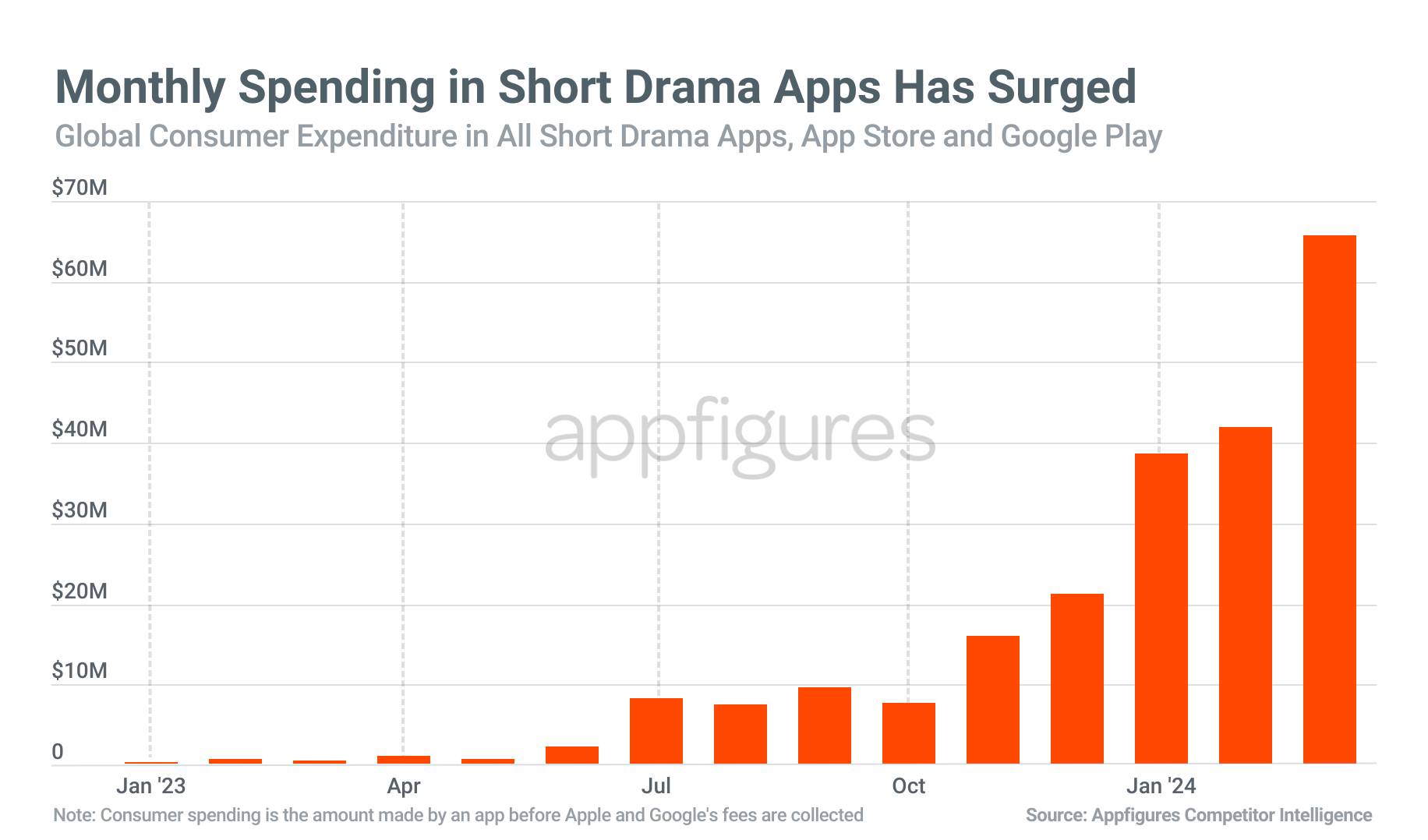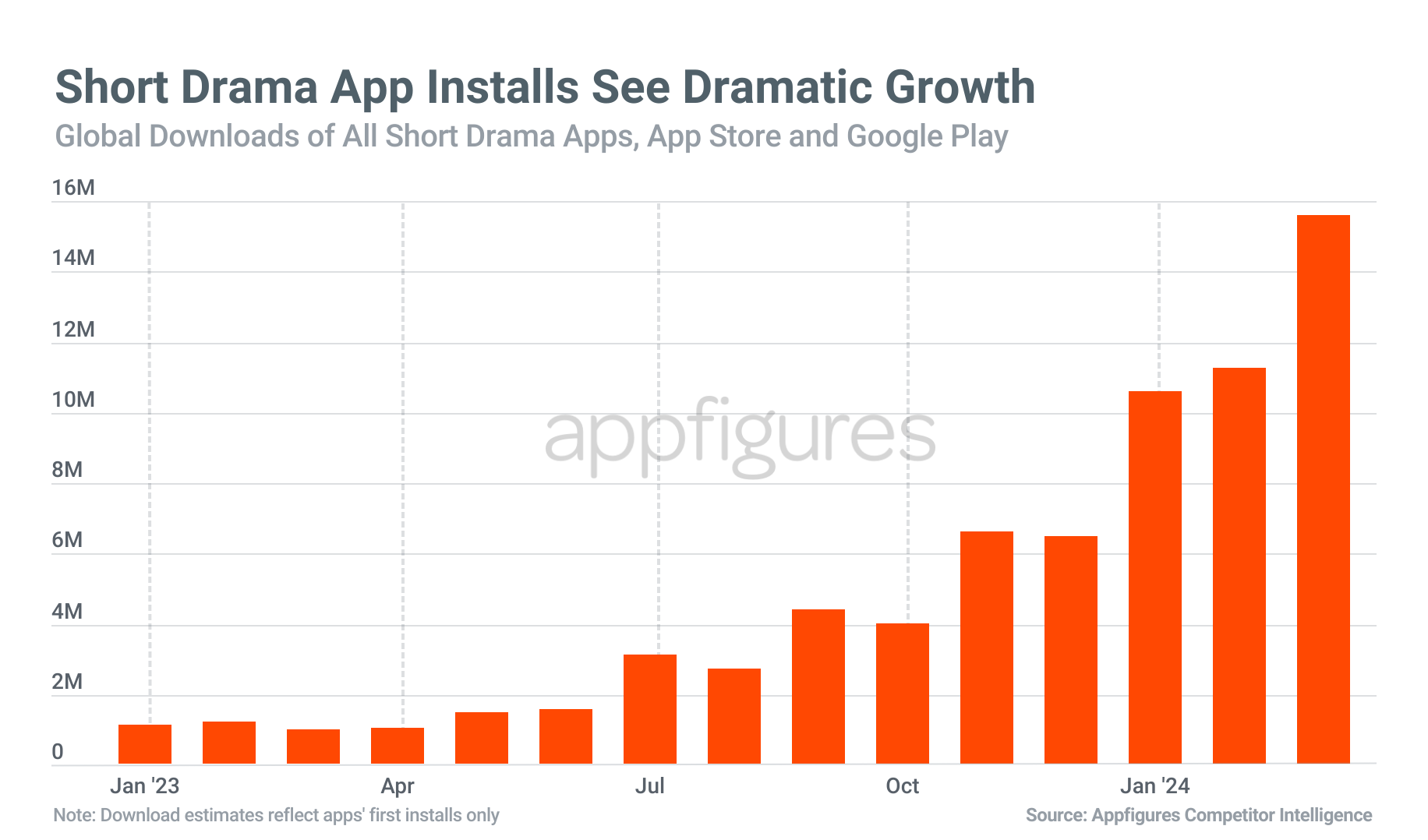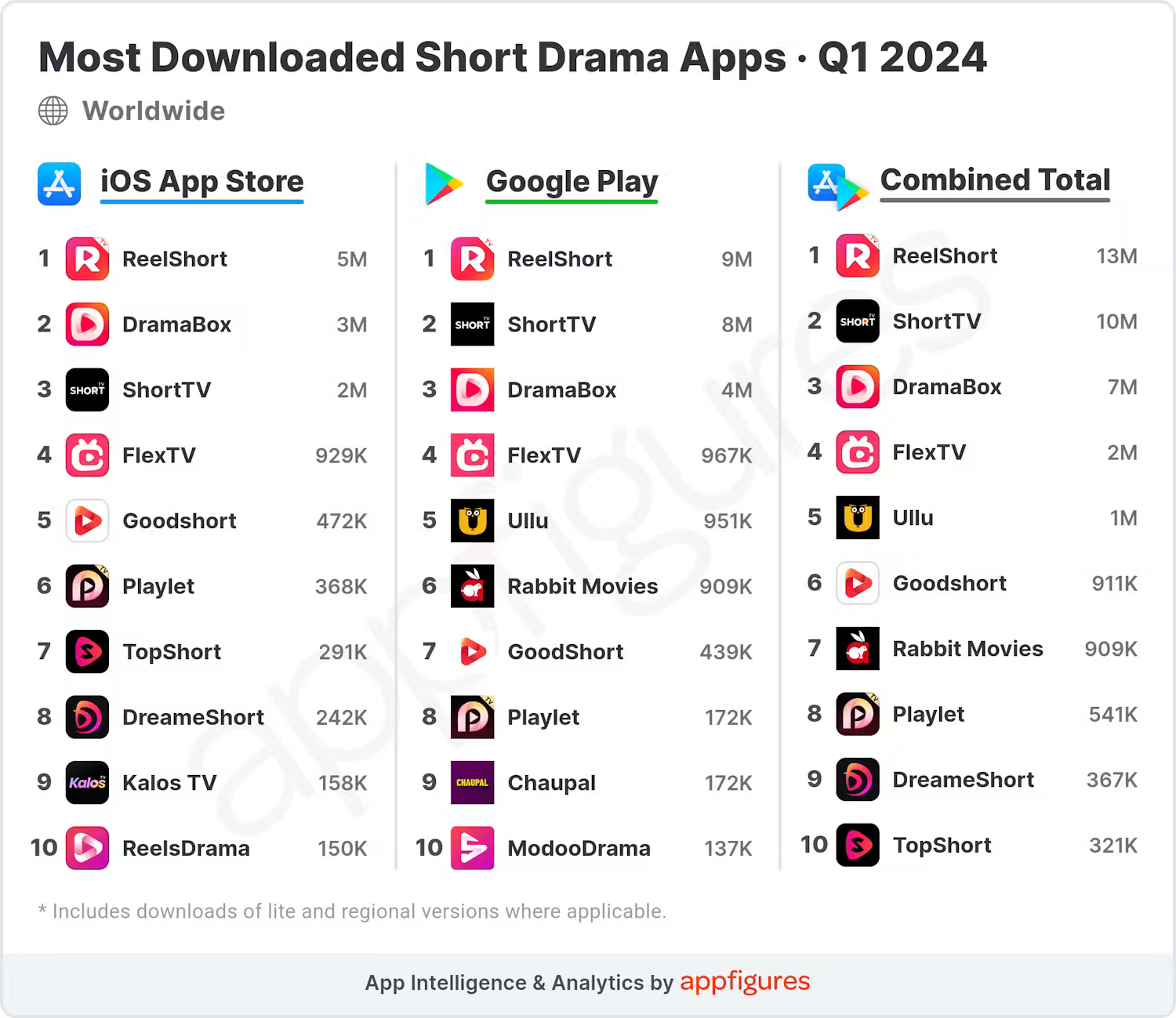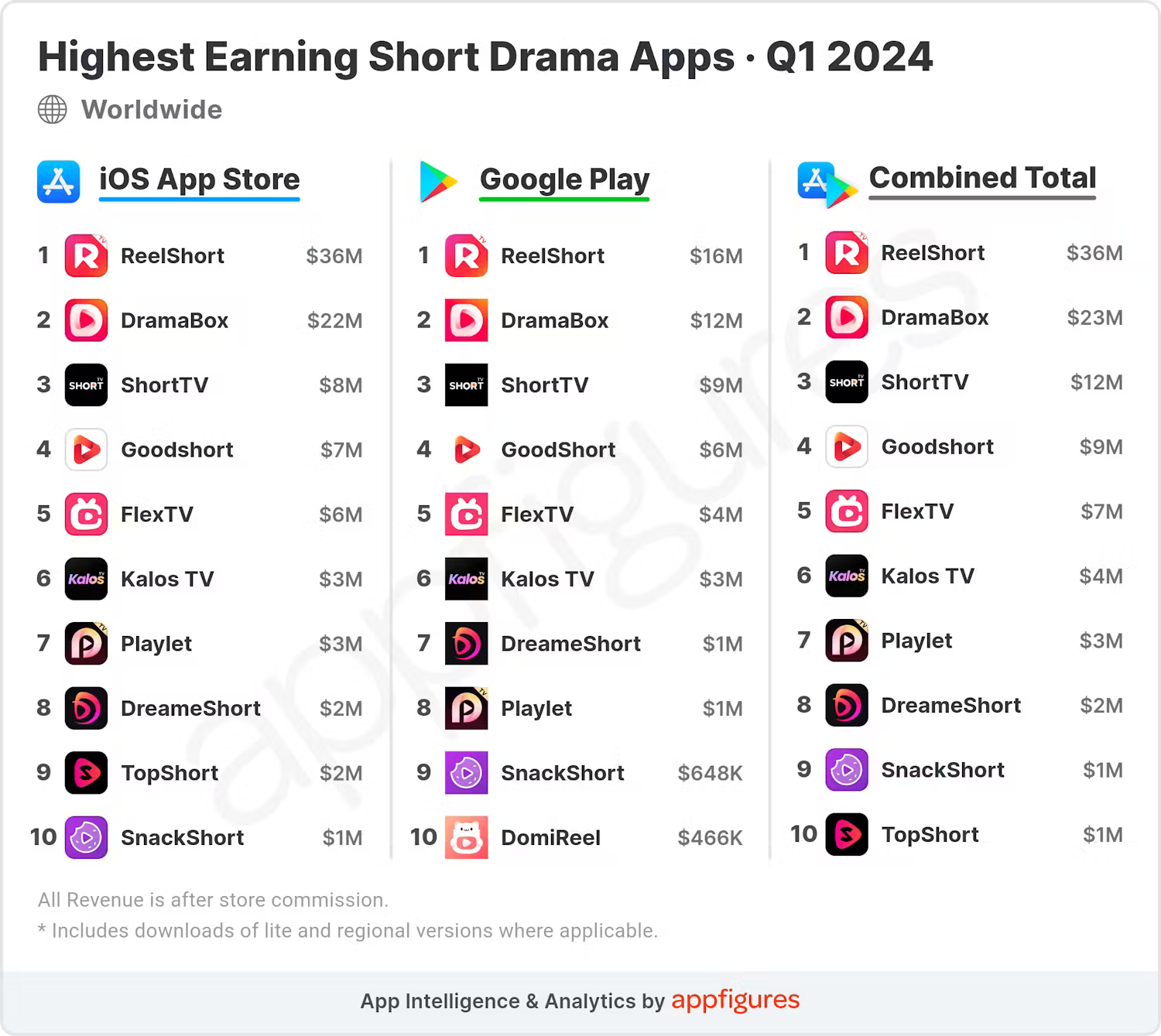Was Quibi ahead of its time? Quibi founder Jeffrey Katzenberg ultimately blamed the COVID-19 pandemic for the failure of his short-form video app, but perhaps it was too soon. New App Store data indicates that the idea that Quibi popularized – original shows cut into short clips that offer quick entertainment – is now making a comeback. In the first quarter of 2024, 66 short drama apps such as ReelShort and DramaBox generated record revenue of $146 million in global consumer spending.
This represents an increase of more than 8,000% from $1.8 million in the first quarter of 2023, when only 21 apps were available, according to data from the app intelligence company. Application Figures. Since then, 45 more apps have joined the market, generating approximately $245 million in gross consumer spending and reaching approximately 121 million downloads.
Image credits: Application Figures
In March 2024 alone, consumers spent $65 million on short drama apps, a 10,500% increase from $619,000 spent in March 2023.
Revenue growth appears to have started to accelerate in fall 2023, according to Application Figures data, leading to a huge jump in revenue between February and March of this year, when global revenue grew 56% to $65.7 million, up from $42 million. In part, revenue growth is tied to the increased number of apps available, of course, but marketing, ad spending and consumer interest also played a role.
The top apps by revenue, ReelShort (#1) and DramaBox (#2), generated $52 million and $35 million in the first quarter of 2024, respectively. That represents about 37% and 24% of the revenue generated by the top 10 apps, respectively.
The No. 3 app, ShortTV, grossed $17 million globally in the first quarter, or 12% of the total.
What’s interesting about these apps, compared to Quibi’s previous attempt to carve out a niche in this space, is the quality of the content. That is, it is a lot, a lot worse than Quibi’s, and Quibi’s wasn’t always great. As TechCrunch wrote last year when describing ReelShort, the app’s stories are “like clips from low-quality soap operas, or like those mobile storytelling games come to life.”
Regardless of the terrible acting and writing, the apps have apparently found some audience.

Image credits: Application Figures
By both facilities and revenue, the United States is by far the leader in terms of primary markets for this group. But overall, the charts vary in terms of which countries download and which countries pay for the content.
By facilities, the top markets after the US are Indonesia, India, the Philippines and Brazil, while the UK, Australia, Canada and the Philippines are the top markets by revenue, beyond the US.
In Q1 2024, short drama apps were installed nearly 37 million times, up 992% from 3.4 million in Q1 2023. By downloads, ReelShort and ShortTV are the top two apps, and the The first represents 37% of installations, or 13.3 million. and the latter with 10 million installations, or 27%. DramaBox, No. 2 for consumer spending, was No. 3 for installs with 7 million (19%) downloads.

Image credits: Application Figures
Reflecting broader app store trends, the majority of revenue (63%) is generated on iOS, while Android accounts for the majority (67%) of downloads.
Although there is growth in this market, these applications do not see anywhere near the attraction that their closest competitors (short-form videos and real-time video) have. Short drama apps garnered a 6.7% share of the total in the three categories combined, up from 0.15% a year ago. But the broader market for video apps makes a lot more money.
For example, the top 10 apps in all three categories combined, which includes apps like TikTok and Disney+, earned $1.8 billion in the first quarter.

Image credits: Application Figures

Image credits: Application Figures









